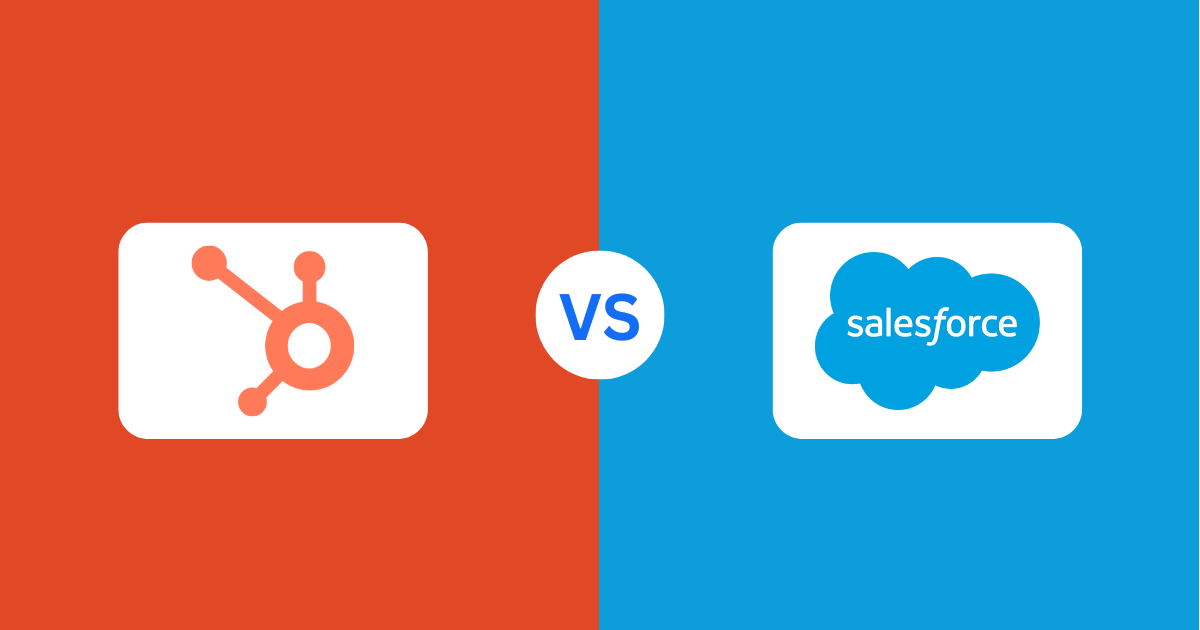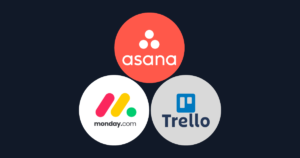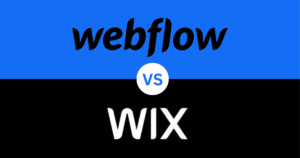Top CRM software comparison
Choosing a Customer Relationship Management (CRM) platform is a crucial decision for businesses of all sizes. Two leading options are HubSpot vs Salesforce, both offering robust features to manage your sales pipeline, nurture leads, and track customer interactions. But which one is right for you? Let’s break down HubSpot vs Salesforce across key categories to help you decide.
1. HubSpot
In the comparison of HubSpot vs Salesforce, HubSpot is an all-in-one CRM platform designed to help businesses grow by combining marketing, sales, and customer service tools in one place. It’s user-friendly and offers a free CRM with features like contact management and email tracking. HubSpot also has specialized hubs for marketing, sales, service, CMS, and operations, making it perfect for small to mid-sized businesses looking to simplify their operations and drive growth.
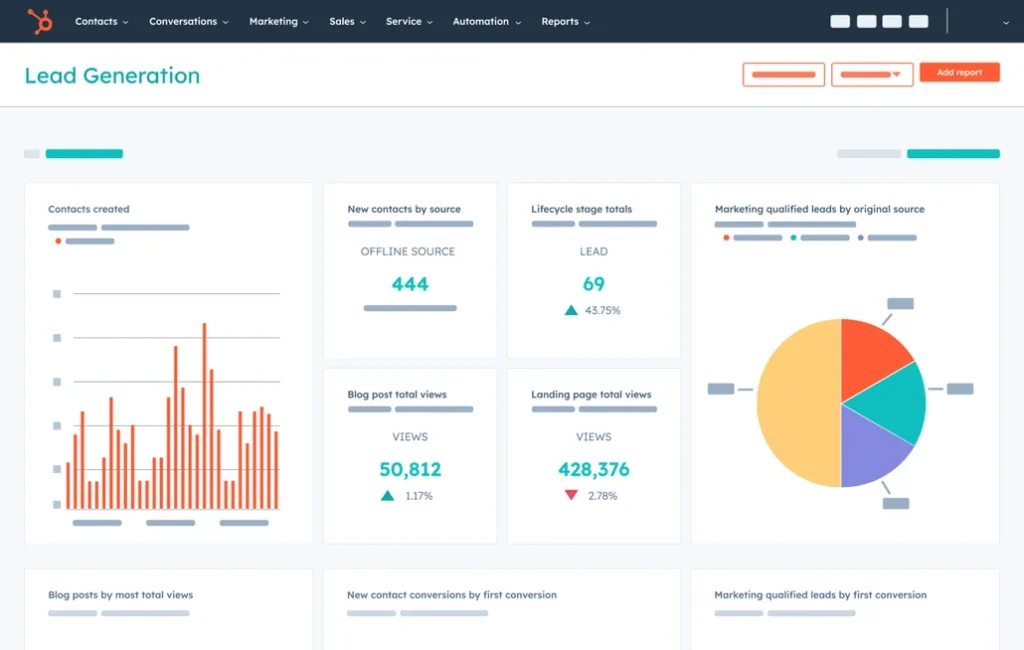
Why I Chose HubSpot
I chose HubSpot because of its user-friendly interface, comprehensive features, and the ability to seamlessly integrate with other marketing tools, making it ideal for small to mid-sized businesses.
Features
- Free CRM: HubSpot still offers a free tier with a 1 million contact limit.
- Marketing Hub: Their AI features are still focused on content recommendations and personalization within the Marketing Hub.
- Sales Hub: The core functionalities like sales automation, email tracking, and meeting scheduling remain the same.
- Service Hub: Customer feedback, support tickets, and knowledge base management are still offered within Service Hub.
- CMS Hub: The website creation and management tools haven’t undergone significant changes recently.
- Operations Hub: Data sync, programmable automation, and data quality tools remain key features.
Pricing
HubSpot offers a range of pricing plans to cater to different business sizes and needs. You can explore their various product pricing options to find the best fit for your business requirements.
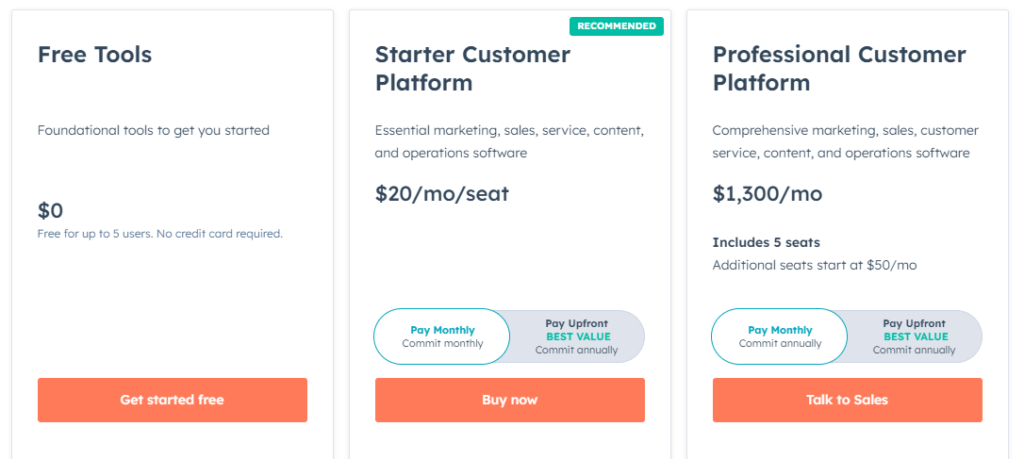
Top Integrations
- Slack: For team collaboration.
- Google Workspace: For productivity tools.
- Zapier: To connect with over 2,000 apps.
- WordPress: For website management.
- Shopify: For e-commerce integration.
Pros and Cons
| Pros | Cons |
| User-friendly interface. | Limited customization compared to Salesforce. |
| Comprehensive free plan. | may not scale well for very large enterprises. |
| Strong marketing automation tools. | Higher-tier plans can be expensive. |
| Excellent customer support. | |
| affordable for smaller businesses |
2. Salesforce
In the debate of HubSpot vs Salesforce, Salesforce stands out as a top cloud-based CRM that helps businesses of all sizes manage sales, customer service, and marketing in one place. Known for its powerful customization, Salesforce allows you to automate tasks, track customer interactions, and use data to drive growth. With thousands of apps on its AppExchange, you can tailor Salesforce to fit your exact needs. Perfect for large businesses, Salesforce is a flexible, all-in-one solution that can scale as you grow.

Why I Chose Salesforce
I chose Salesforce because of its robust customization capabilities, extensive app ecosystem, and ability to scale with a business as it grows, making it ideal for larger enterprises.
Features
- Sales Cloud: Manage leads, forecast deals, and close more wins with ease. (HubSpot vs Salesforce)
- Service Cloud: Automate customer service, resolve cases efficiently, and keep your customers happy.
- Marketing Cloud: Craft powerful marketing campaigns, engage your audience on social media, and drive sales. (HubSpot vs Salesforce)
- Commerce Cloud: Build seamless online stores, personalize the shopping experience, and boost your e-commerce success.
- Analytics Cloud: Gain valuable insights from your data, make data-driven decisions, and optimize your entire business.
- AppExchange: Extend the power of Salesforce with thousands of third-party apps tailored to your specific needs. (HubSpot vs Salesforce)
Pricing
Salesforce offers various pricing plans tailored to different needs. You can explore their extensive range of product pricing options to find the perfect fit for your business requirements.
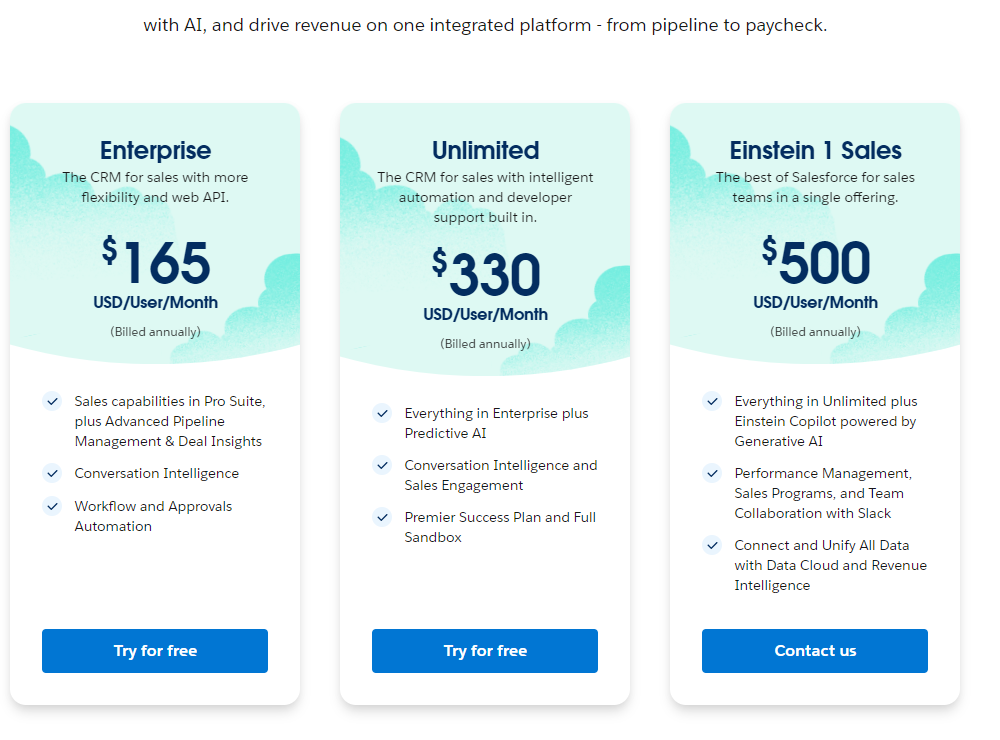
Top Integrations
- Zapier
- DocuSign
- Slack
- Microsoft Office 365
Pros and Cons
| Pros | Cons |
| Highly customizable. | Steeper learning curve compared to HubSpot. |
| powerful features. | no free tier. |
| scalable for large enterprises. | higher pricing for advanced features. |
| robust reporting and analytics. |
See all blog posts https://ilyasdigital.com

